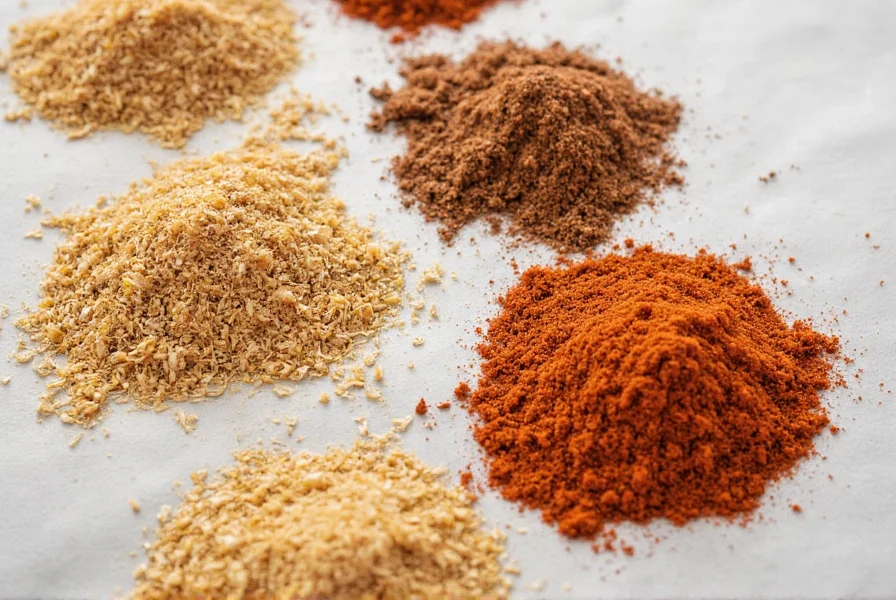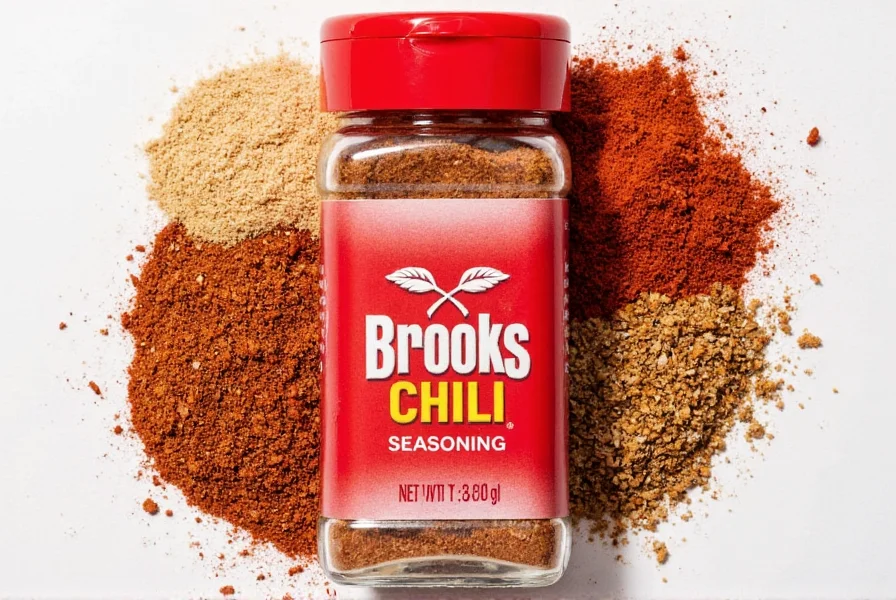Yes, you can absolutely use fajita seasoning for tacos! While there are slight differences in flavor profiles between fajita and taco seasoning, fajita seasoning is a great substitute that adds a smoky, tangy twist to your tacos. Here's what you need to know to make perfect tacos with fajita seasoning.
Table of Contents
- Introduction: Spice Confusion or Creative Cooking?
- Fajita vs. Taco Seasoning: What's the Difference?
- Can You Use Fajita Seasoning for Tacos?
- Taste Test: Fajita Seasoning on Tacos
- Pro Tips for Using Fajita Seasoning in Tacos
- Buying Guide: Best Fajita Seasonings for Your Taco Nights
- FAQ: Your Fajita Seasoning for Tacos Questions Answered
- Conclusion: Yes, You Can – And Here's Why!
Introduction: Spice Confusion or Creative Cooking?

When you're in the kitchen and need to choose between fajita and taco seasoning, the key question isn't whether they're interchangeable—it's how to make the most of what you have. Fajita seasoning works perfectly for tacos with just a few simple adjustments to enhance flavor and texture.
Fajita vs. Taco Seasoning: What's the Difference?
| Seasoning Type | Typical Ingredients | Flavor Profile | Common Uses |
|---|---|---|---|
| Fajita Seasoning | Paprika, chili powder, cumin, garlic powder, onion powder, oregano, salt, pepper, sometimes citrus zest or vinegar | Smoky, earthy, slightly tangy with a mild heat | Fajitas (chicken, steak, shrimp), grilled veggies |
| Taco Seasoning | Chili powder, cumin, paprika, garlic powder, onion powder, oregano, salt, pepper, sometimes cornstarch or flour | Bold, savory, spicy, slightly sweet | Taco meat, enchiladas, nachos, burritos |

Both blends share core ingredients like cumin, chili powder, and garlic. The key difference lies in balance and purpose: fajita seasoning leans into smoky, tangy notes (often with citrus elements), while taco seasoning is designed for bold heat and includes starch for thickening meat fillings.
Can You Use Fajita Seasoning for Tacos?
The short answer: Yes, absolutely! If you find yourself out of taco seasoning, fajita seasoning makes an excellent substitute that brings a unique twist to your meal.
Here's why it works perfectly:
- Shared ingredients like cumin, garlic, and chili powder give both seasonings a similar base.
- Mild smokiness from paprika adds depth without overpowering other taco elements like salsa or avocado.
- No starch means it won't thicken your meat like some taco seasonings do, giving you a lighter finish.
Taste Test: Fajita Seasoning on Tacos
We tested grilled chicken seasoned with fajita mix, stuffed into warm tortillas with toppings like cilantro, lime, and guac.
Verdict:
- Texture: Lighter than traditional taco meat (great for those avoiding starch-thickened blends).
- Flavor: Smoky and aromatic with subtle heat. A little less punch than standard taco seasoning but definitely tasty.
- Overall: A solid choice if you want something a bit different from your usual taco Tuesday routine.
Pro Tips for Using Fajita Seasoning in Tacos
If you're going to try using fajita seasoning for tacos, here are some tips to elevate your dish:
- Use it as a dry rub for grilled meats – perfect for chicken, steak, or even shrimp tacos.
- Pair with acidic toppings like lime or green salsa to balance the earthy flavors.
- Add extra heat if you prefer spicier tacos – a dash of hot sauce or crushed red pepper flakes does wonders.
- Don't skip the aromatics – sautéed onions and peppers add texture and depth to fajita-seasoned tacos.
- Serve warm tortillas – nothing beats the combo of grilled, seasoned meat and soft, warm bread!

Buying Guide: Best Fajita Seasonings for Your Taco Nights
| Product Name | Features | Advantages | Best For | Occasions |
|---|---|---|---|---|
| Badia Fajita Seasoning | No preservatives, simple ingredients | Easy to use, versatile, affordable | Weeknight dinners, quick grilling | Taco Tuesdays, casual meals |
| McCormick Perfect Pinch Fajita Seasoning | Pre-mixed, ready to sprinkle | Perfectly balanced flavor, no need to adjust ratios | Busy cooks, beginners | Family dinners, potlucks |
| Penzeys Fajita Rub | High-quality spices, gluten-free | Great for grilling, clean ingredient list | Culinary enthusiasts, health-conscious eaters | BBQs, gourmet tacos |
| La Flor Fajita Seasoning | Authentic Mexican flavor, minimal processing | Deep, rich taste, ideal for Latin-inspired dishes | Traditionalists, foodies | Festive gatherings, fiestas |
| Trader Joe's Fajita Seasoning Blend | Affordable, organic options available | Good value for everyday cooking | College students, budget shoppers | Simple, satisfying meals |
FAQ: Your Fajita Seasoning for Tacos Questions Answered
Can I really use fajita seasoning instead of taco seasoning for my tacos?
Absolutely! Fajita seasoning works wonderfully as a substitute for taco seasoning. Both blends share key ingredients like cumin, chili powder, garlic, and onion. The main difference is that fajita seasoning often has a slightly smokier, more tangy profile due to potential citrus elements, while taco seasoning is typically bolder and spicier. Your tacos will have a delicious variation on the traditional flavor that many people actually prefer.
How much fajita seasoning should I use when making tacos?
Use the same amount of fajita seasoning that your taco recipe calls for in taco seasoning. For ground meat, a typical ratio is 2-3 tablespoons of seasoning per pound of meat. If you're using a store-bought blend, follow the package instructions. For homemade blends, start with 2 tablespoons per pound and adjust to taste. Remember that fajita seasoning doesn't contain starch like some taco seasonings do, so you won't get that thickened sauce texture unless you add a bit of cornstarch or flour separately.
Will my tacos taste different if I use fajita seasoning?
Yes, but in a good way! Tacos made with fajita seasoning will have a slightly different flavor profile—more smoky and earthy with subtle tanginess compared to traditional taco seasoning. They'll be lighter in texture since most fajita seasonings don't contain thickening agents. Many people actually prefer this version because it lets the natural flavors of the meat and fresh toppings shine through. If you want your tacos to taste more like traditional ones, add an extra pinch of cayenne pepper and a teaspoon of sugar to boost the heat and sweetness.
What's the best meat to use with fajita seasoning for tacos?
Fajita seasoning shines with grilled meats, making it particularly excellent for chicken, steak, or shrimp tacos. For chicken, boneless thighs work better than breasts as they stay juicier. For steak, skirt or flank steak are traditional fajita cuts that work beautifully in tacos. If using ground meat (like for traditional tacos), you'll want to add about 1/2 cup of water per pound of meat since fajita seasoning doesn't contain starch to create that signature taco meat texture.
Can I make my fajita seasoning taste more like traditional taco seasoning?
Yes, with a few simple tweaks! To make your fajita seasoning taste more like traditional taco seasoning, add 1/2 teaspoon of cayenne pepper per tablespoon of seasoning for extra heat, 1 teaspoon of sugar per tablespoon for sweetness, and 1 teaspoon of cornstarch per tablespoon if you want that thicker sauce texture. For an authentic touch, add a squeeze of fresh lime juice just before serving to brighten the flavors. These adjustments let you customize the seasoning to match your preferred taco flavor profile exactly.
Conclusion: Yes, You Can – And Here's Why!
So, can you use fajita seasoning for tacos? The answer is a resounding YES! While it might not be exactly the same as taco seasoning, fajita seasoning brings its own delightful flair to your favorite handheld feast.
Whether you're out of taco seasoning or just looking for a fresh flavor change, reach for that fajita blend. With its smoky, tangy notes and versatility in the kitchen, it's a fantastic way to spice up your taco game without any fuss.
So next time taco night rolls around, go ahead and taco 'bout it with confidence – you've got the seasoning savvy to back it up!










 浙公网安备
33010002000092号
浙公网安备
33010002000092号 浙B2-20120091-4
浙B2-20120091-4